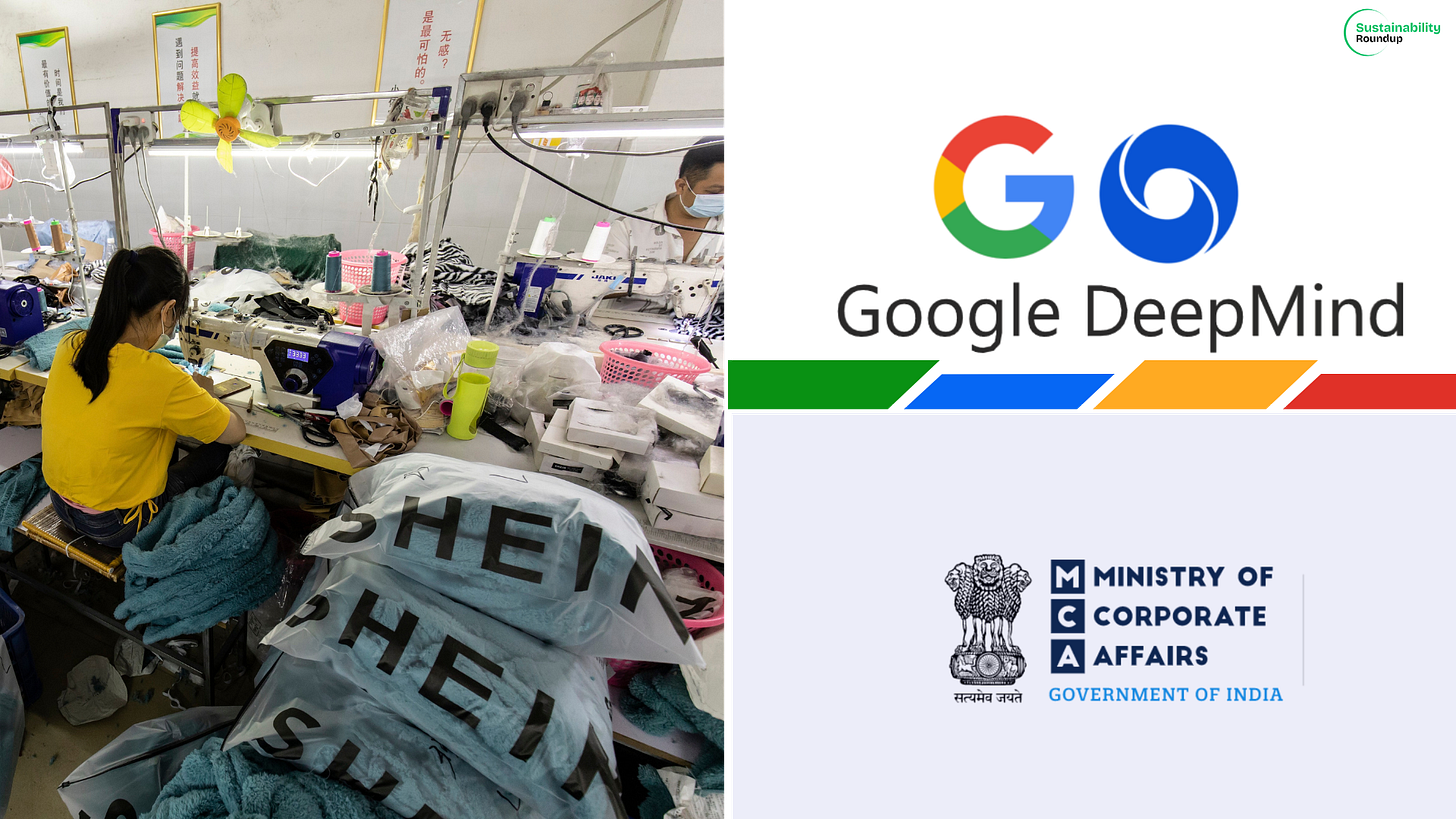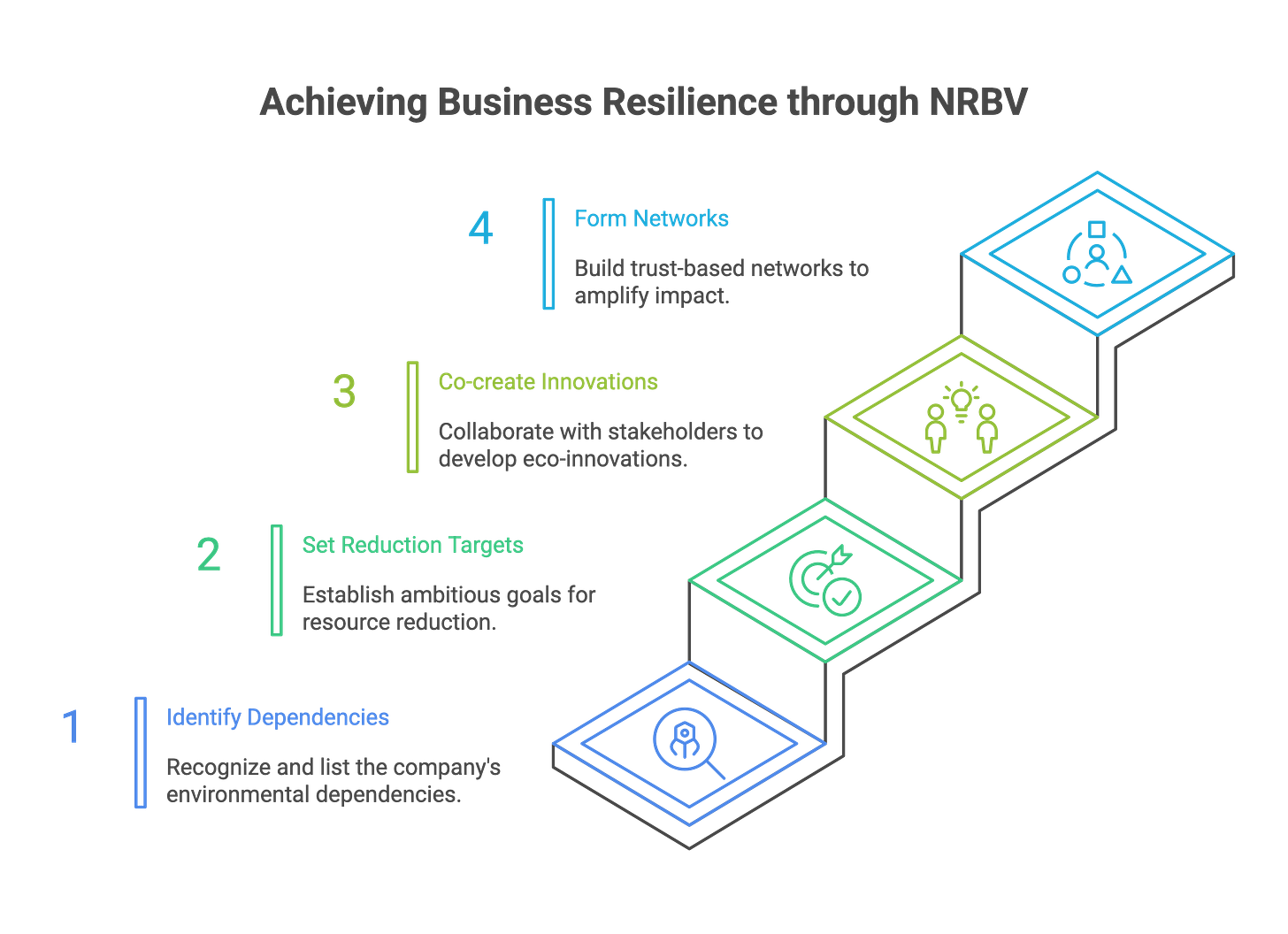Google’s AI Sustainability Breakthrough, Shein’s Million-Euro Greenwashing Fine, and India’s Bold ESG Legal Revolution?
Issue #2
Hi there, 🌍
This week, we focus on how the future of responsible business is being shaped in real time. From Google DeepMind’s cutting-edge AI transforming planetary sustainability science, to Shein’s landmark €1 million fine for greenwashing, and India’s potential legal leap to mandate ESG standards. Inside, you’ll discover how to stay ahead with smart frameworks and practical tools for leading in this new era of impact, trust, and strategy.
1. Shein Fined €1 Million for Greenwashing in Italy ⚖️
Italy’s competition authority has fined fast-fashion giant Shein €1 million for misleading environmental claims about product sustainability, circularity, and emissions targets marking a strong regulatory stance on greenwashing across Europe. This decision sends a clear message to brands about the need for transparent verifiable sustainability communications.
2. Google DeepMind Launches AlphaEarth Foundations to Revolutionize Environmental Mapping 🛰️
AlphaEarth Foundations, developed by Google DeepMind, sets a new bar for global geospatial mapping by integrating petabytes of satellite, lidar, and climate data to create unified, high-precision representations of the planet. Touted as a “virtual satellite,” this breakthrough DeepMind AI is already being used by organizations like the UN FAO and MapBiomas, enabling faster, more affordable, and more accurate ecosystem analysis, supporting everything from conservation to climate risk assessment.
3. India Proposes ESG Oversight via Companies Act Reforms 📜
A Parliamentary panel in India has recommended amending the Companies Act to explicitly include environmental, social, and governance objectives as part of directors' fiduciary duties and establish an oversight body to actively combat greenwashing and impose penal provisions for fraudulent sustainability claims. The reforms aim to transition from voluntary disclosure to a strategic legal mandate improving accountability and support for Micro Small and Medium Enterprises (MSMEs) in India.
This week, let’s talk about the Natural-Resource-Based View (NRBV), a strategy framework that turns environmental stewardship into a core business advantage.
The Resource-Based View (RBV) frames a firm as a collection of valuable resources, its core tangible assets, intangible assets, and human resources that together create competitive advantage. Building on this, the Natural-Resource-Based View (NRBV) recognizes environmental resources - energy, water, materials, and waste as critical strategic assets.
To embed NRBV into your strategy, start by mapping your key environmental dependencies across your value chain. Set ambitious, measurable goals to cut resource use and reduce environmental impact. Engage suppliers and stakeholders as collaborators to design and implement innovative, sustainable solutions. At its heart, this is about relationship building: fostering trust based collaborations that not only strengthen your sustainability efforts but also future proof your strategy and products in a rapidly evolving market 🌱.
For more detailed insights on NRBV and its role in strategy and sustainability, see this comprehensive study: A relational natural-resource-based view on product innovation.
Explore how the fashion industry is transforming sustainability through circular economy models such as recycling, rental, and second-hand markets, combined with transparency and new technologies. The episode features expert insights on product stewardship, brand accountability, and sustainable innovation shaping the future of fashion by 2050 👗♻️.
What is your perspective on the long-term sustainability of circular rental business models, both from environmental and financial standpoints? Share your thoughts here.
In our last newsletter’s poll results, most readers favored keeping strong EU sustainability rules, showing a clear preference for steady environmental safeguards over shortcuts. At the same time, about a third said their support depends on the details, highlighting a desire for clarity and flexibility as regulations evolve. This signals that while trust in strong standards is high, effective policy will need both firmness and smart communication to win broad support 📊.
If you missed our last issue of the Sustainability Roundup newsletter, click here to read it.








